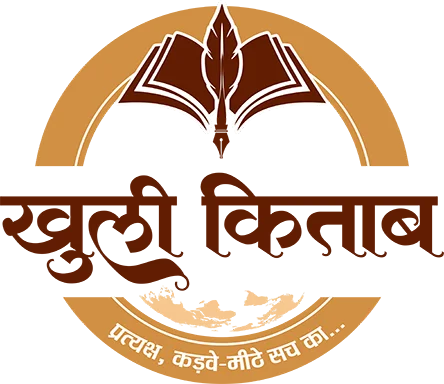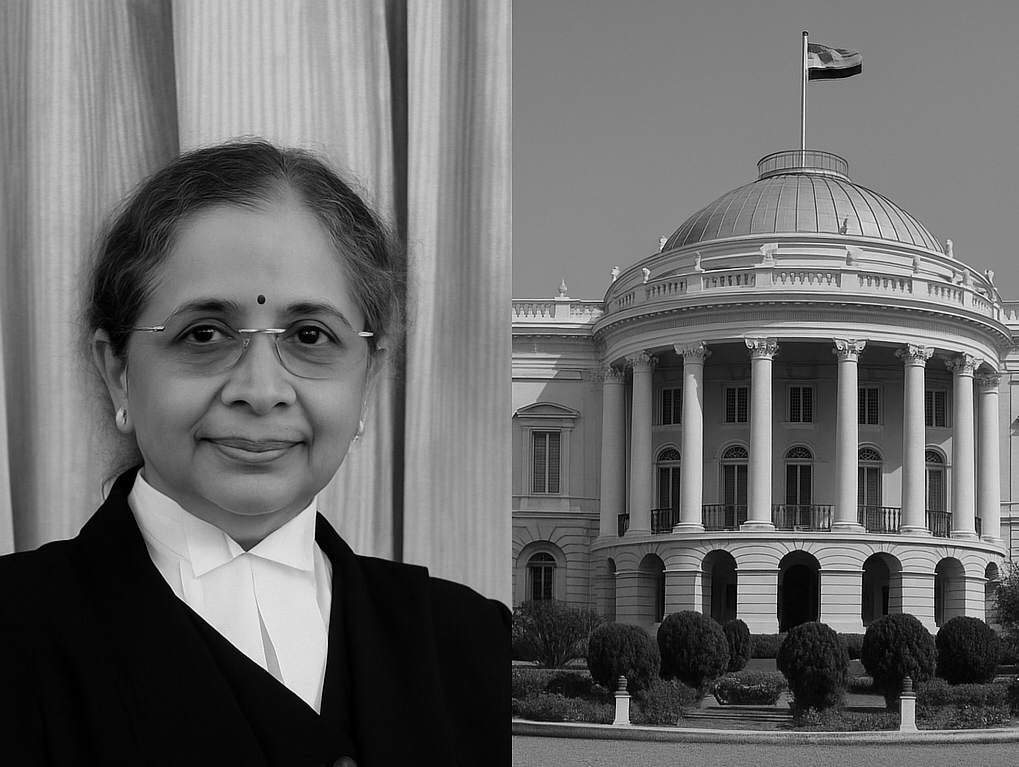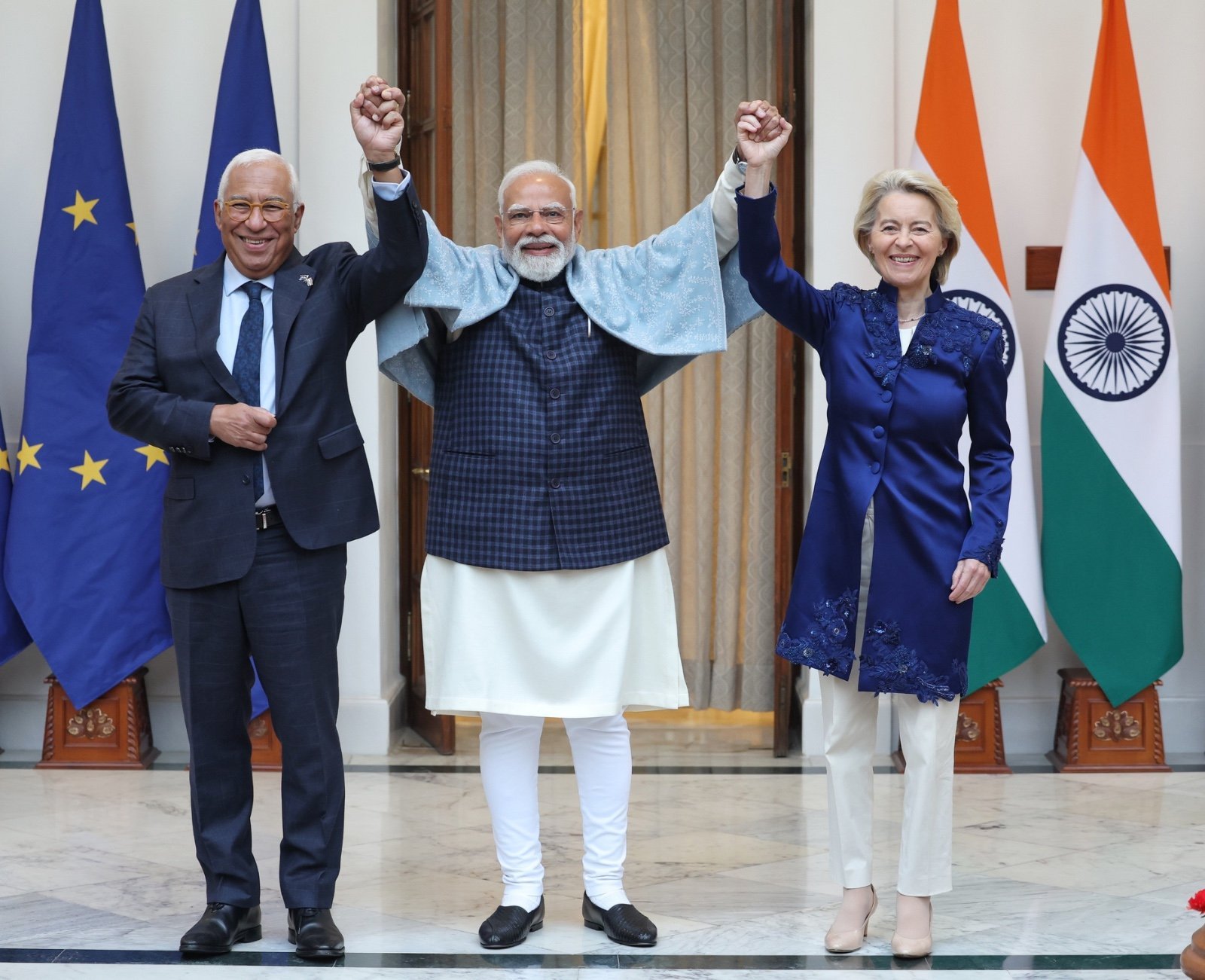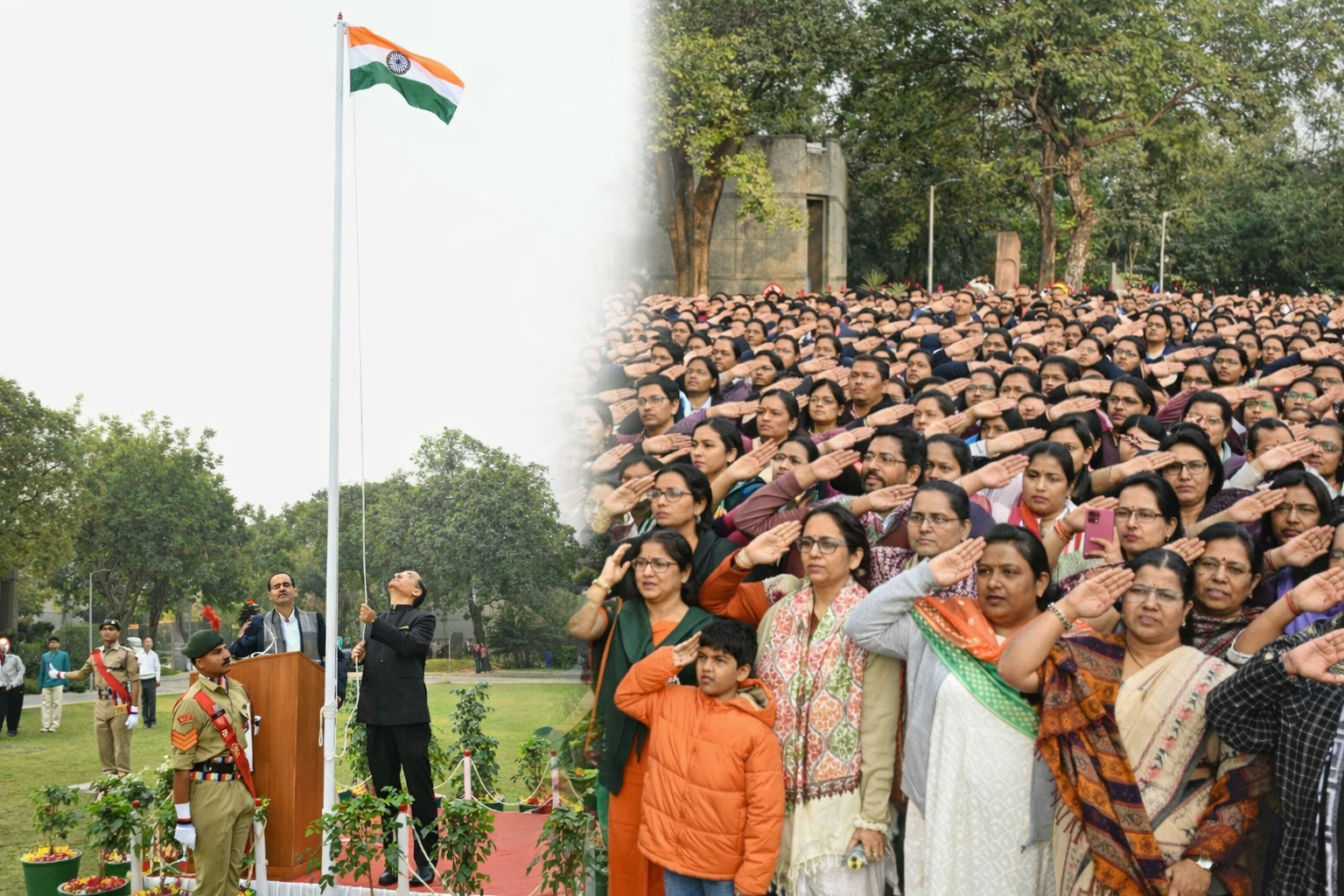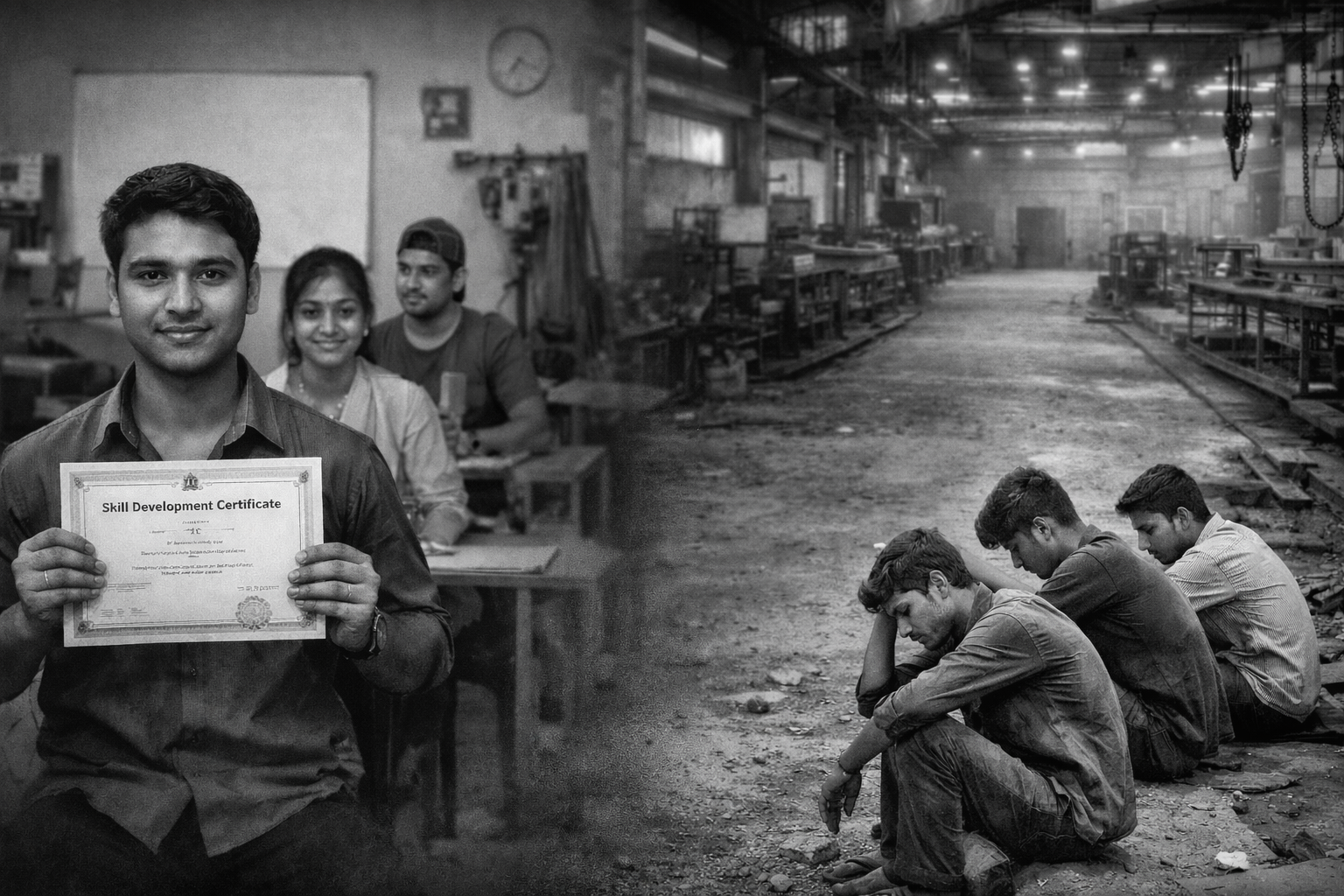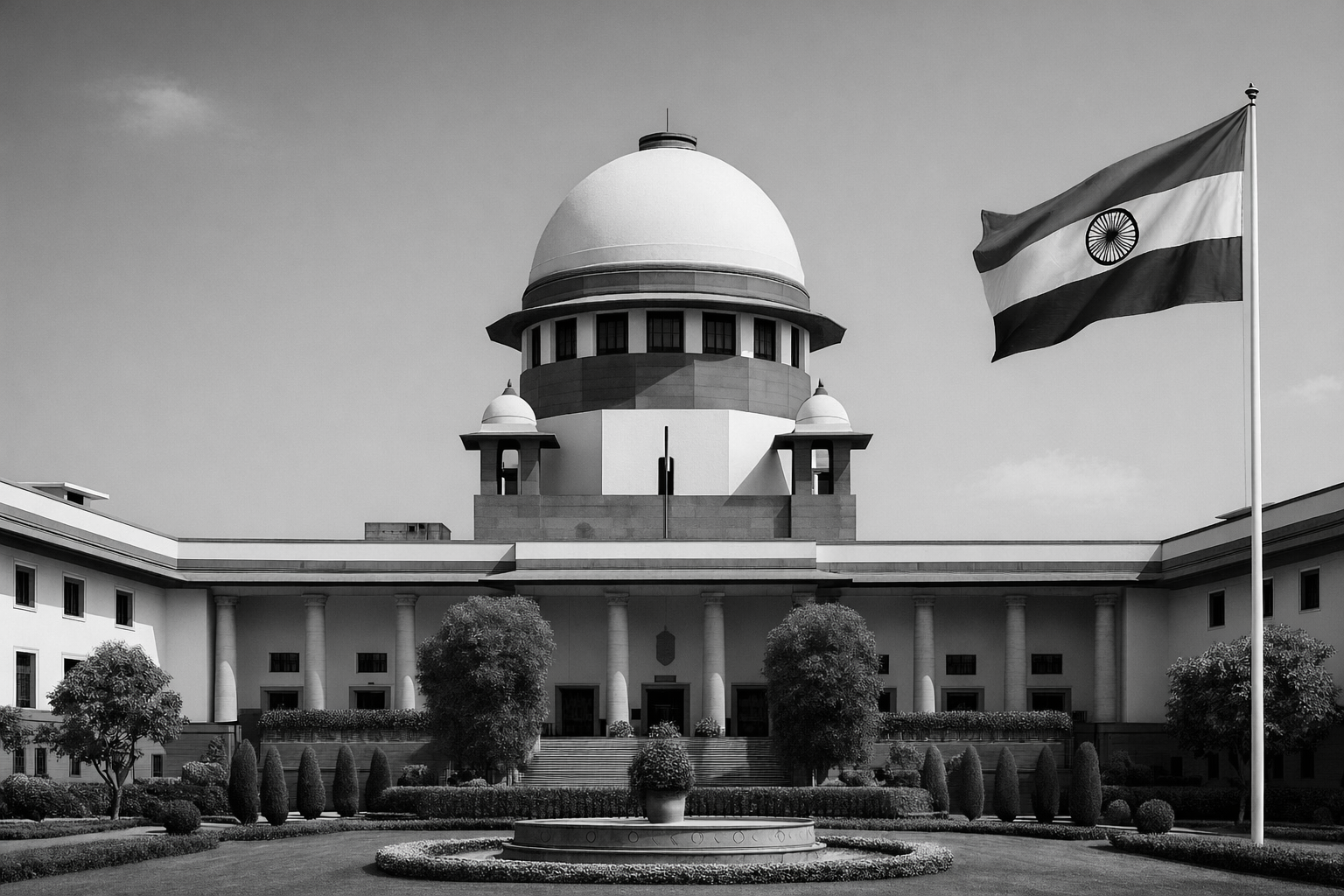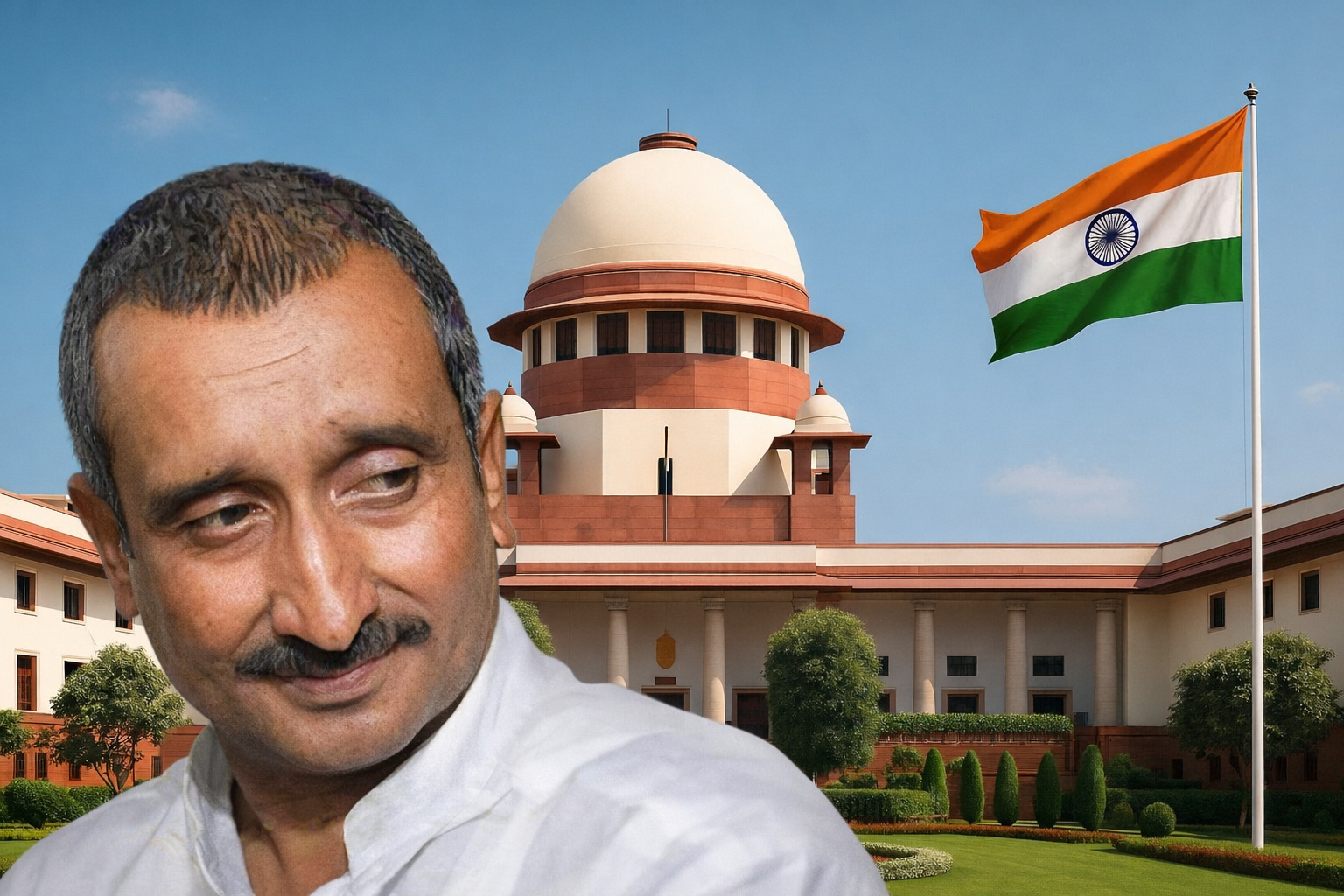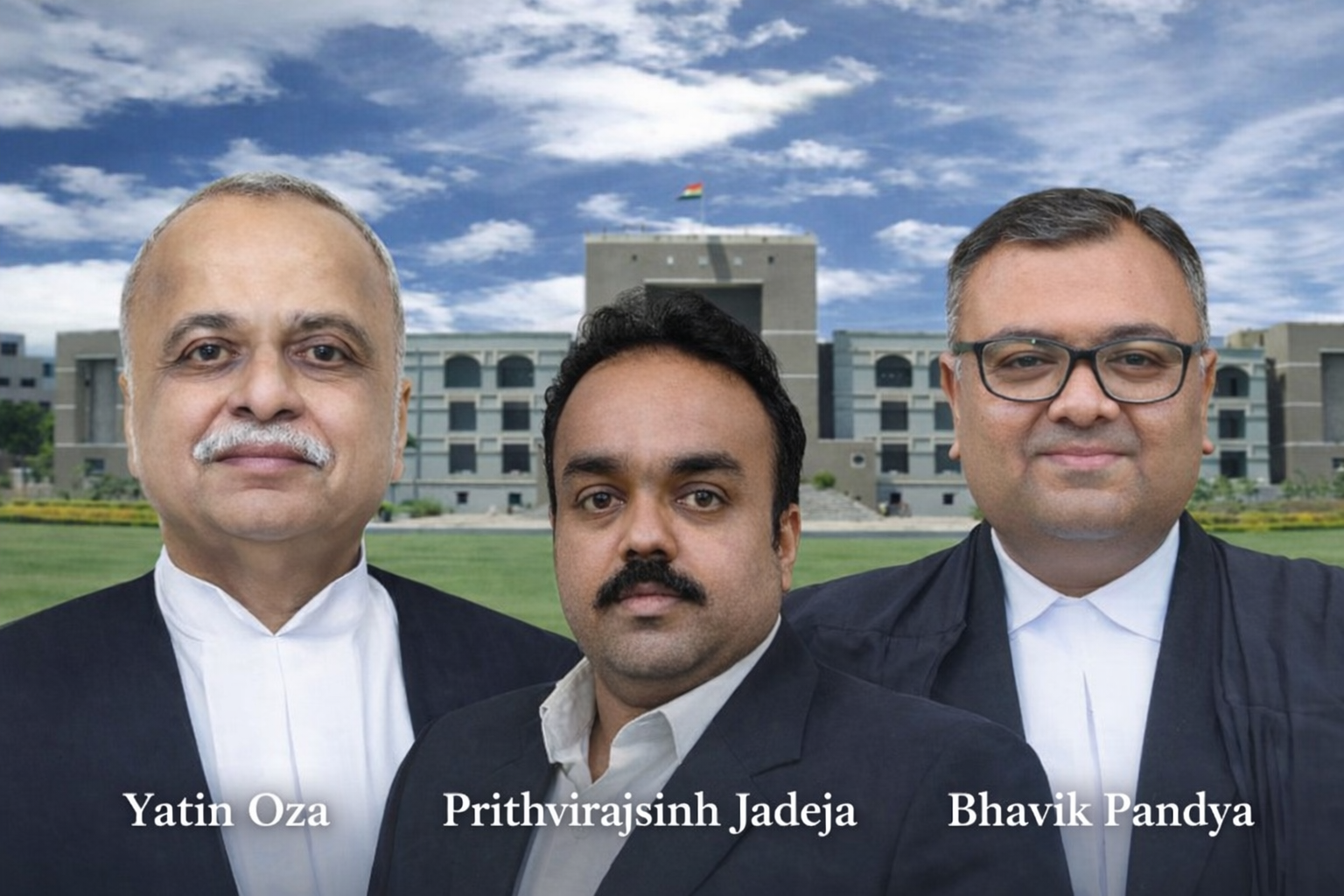
Silence or Signal?
Ahmedabad, May 26, 2025, On May 17, 2025, Justice Bela M. Trivedi retired from the Supreme Court of India without a customary farewell from the Bar. There was no ceremony, no formal send-off, and no public acknowledgment from the legal fraternity. She was not only among the few women to ever serve on the nation’s highest bench, but also the first woman judge from Gujarat to rise from the trial courts all the way to the Supreme Court. Now, with speculation mounting that she may be appointed as the next Governor of West Bengal, the silence surrounding her exit has taken on deeper meaning. Was this merely a break from tradition—or a quiet but deliberate message of dissent? This report explores the silence, the symbolism, and the shifting institutional dynamics behind one of the Supreme Court’s most unusual farewells.
A Career Carved Through the Ranks
Justice Trivedi’s judicial journey is as rare as it is distinguished. Starting as a civil and sessions judge in Ahmedabad in 1995, she steadily climbed the judicial ladder—serving in the Gujarat and Rajasthan High Courts before being elevated to the Supreme Court in August 2021. Her rise from trial court to the apex bench is uncommon, even within India’s vast judicial system.
Her judgments left a significant imprint on constitutional and criminal jurisprudence. Notably, she upheld the constitutionality of the 103rd Constitutional Amendment granting 10% EWS reservation, dissented in the sub-classification case of Scheduled Castes by asserting that only Parliament can modify the SC list, and struck down the inclusion of lawyers under the Consumer Protection Act. She was also instrumental in overturning the controversial ‘skin-to-skin’ Bombay High Court judgment under the POCSO Act, reaffirming that narrow technicalities should not undermine the purpose of child protection laws.
Her courtroom demeanor was marked by precision and authority. Colleagues and juniors alike noted her insistence on procedural integrity and firm handling of cases. Yet, this very insistence may have alienated segments of the legal community.
The Ceremony That Never Was
As per long-standing tradition, retiring Supreme Court judges are honoured by the Bar in public farewell ceremonies—a symbolic gesture acknowledging judicial service. These events are not mandatory, but they carry immense institutional and emotional significance. For Justice Trivedi, however, the Bar offered only silence.
Neither the SCBA nor SCAORA issued a statement or scheduled an event. Instead, the final day passed with a formal courtroom farewell from the Bench alone. Justice B.R. Gavai presided over the ceremonial bench and expressed open disapproval, stating, “I must deprecate openly because I believe in being plain and straight. On such an occasion, such a stand ought not to have been taken.” Justice Augustine Masih also voiced concern, urging preservation of traditions that honour institutional civility.
What Went Wrong?
No official explanation emerged from the Bar. However, conversations in legal corridors and muted social media exchanges suggest discontent with some of Justice Trivedi’s actions.
In one of her most contentious interventions, she ordered a CBI probe against lawyers accused of filing petitions using forged vakalatnamas. Many in the Bar saw this move as excessive, accusing her of overreach. Others point to her consistently stern tone with lawyers, where procedural lapses were met with stinging rebukes rather than collaborative correction.
Such actions, though legally permissible, were perceived by many as a breach of collegial spirit. Yet, there was another side—those who praised her integrity and lamented the growing culture of laxity among legal professionals.
Some commentators have gone so far as to frame the missing farewell as a symbolic protest—an act of dissent in a judiciary where open criticism is often curtailed by contempt laws. It is worth noting, however, that no other judge—male or female—has been denied this courtesy in recent memory, further deepening the intrigue.
Gendered Expectations?
Justice Trivedi’s farewell silence also intersects with the broader question of gender dynamics in the judiciary. She is only the eleventh woman to have served on the Supreme Court in 75 years. In a field where women remain underrepresented, the absence of institutional courtesy evokes uncomfortable parallels—of women in authority being held to disproportionately high standards.
To disagree with a judge is one thing. But to deny even the basic rites of professional closure reflects more than disapproval—it borders on ostracism. The judiciary, as the final arbiter of constitutional values, must reflect those same values in its conduct.
Postscript: From Judicial Exit to Political Entry?
Within days of her early retirement, reports began surfacing that Justice Trivedi is being considered for appointment as the next Governor of West Bengal. Multiple news platforms, including Taaza TV and Kalimpong News, have cited sources confirming that she may replace current Governor C.V. Ananda Bose, whose health is reportedly declining. If appointed, she would become the first woman Governor of West Bengal.
While her official reason for early retirement was a “pre-scheduled personal trip abroad,” the timing of these developments suggests a calculated transition. Justice Trivedi’s legal positions—especially those seen as aligned with the policy positions of the central government—add a layer of political undertone to the narrative.
In India, such judicial-to-gubernatorial transitions are not without precedent. However, they often spark debate about institutional neutrality and the blurred lines between judicial service and political reward. In Justice Trivedi’s case, the missed farewell and the looming gubernatorial appointment now appear as chapters of the same unfolding story.
If confirmed, her appointment would not only spotlight her judicial legacy but also question how dissent, silence, and statecraft coalesce at the highest levels.
The farewell that never was might, in hindsight, be remembered not as an institutional lapse—but as the first sign of institutional realignment.
संपादकीय टिप्पणी:
यह लेख अतिथि लेखिका लेया सुसन बीनू (Leya Susan Binu) द्वारा मूल रूप से अंग्रेज़ी में लिखा गया है। चूँकि विषय संवैधानिक और राष्ट्रीय महत्व का है, ‘खुली किताब’ ने इसे अंग्रेज़ी में ही प्रकाशित करने का निर्णय लिया है — ताकि न्यायिक संवाद को भाषा की सीमा से आगे ले जाया जा सके।
